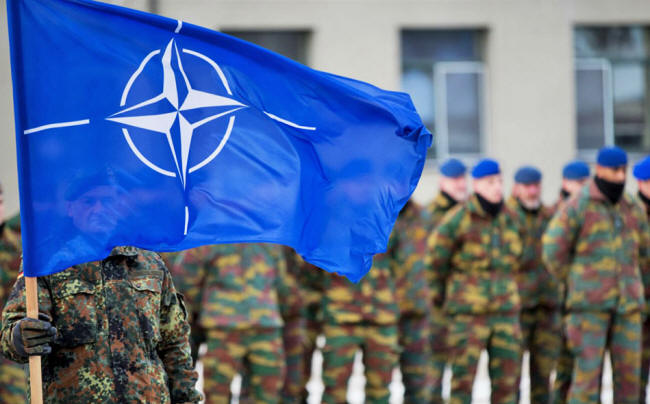|
July 05, 2018 from GlobalResearch Website
The meeting of the
European Council on 28 June confirmed that the Union, founded on the
interests of the economic and financial oligarchies, beginning with
those of the greatest powers, is presently crumbling because of its
conflicts of interest, which are not limited to the migrant
question.
President
Donald Trump will therefore be
holding the strongest cards at the bilateral Summit which is to be
held five days later, on 16 July in Helsinki, with Russian President
Vladimir Putin.
The fact that the USA
have never wanted a unified Europe as an equal ally is no secret to
anyone. For more than 40 years, during the Cold War, they maintained
Europe in subordination as the front line of the nuclear
confrontation with the Soviet Union.
This is the reason for the strategic reorientation of NATO, still under US command, recognized by the Treaty of Maastricht as the "foundation for the defense" of the European Union, and also for its expansion towards the East, linking the former countries of the Warsaw Pact more to Washington than Brussels.
During the wars waged
after the end of the Cold War (Iraq, Yugoslavia, Afghanistan, Iraq
for the second time, Libya, Syria), the United States were pursuing
secret deals with the greatest European powers (Great Britain,
France, Germany) and sharing with them certain zones of influence,
while from the other European states (including Italy) they obtained
what they wanted without any substantial concessions.
This has led to the new
Cold War that was triggered in Europe in 2014 (during the
Obama
administration), and the economic sanctions and the escalation of
NATO's strategy against Russia.
When he met President Macron in April, Trump suggested that France should leave the European Union, offering him commercial conditions more advantageous than those of the EU.
We do not know what is being decided in Paris.
But it is significant that France launched a plan anticipating joint military operations with a group of EU countries, a plan made independently of the decision-making apparatus of the EU.
The agreement was signed in Luxembourg, on 25 June, by,
...which would therefore
be able to participate even after its exit from the EU in March
2019.
In fact, the plan was approved by NATO, since ,
And, as underlined the Italian Minister for Defense Elisabetta Trenta, because the,
|


